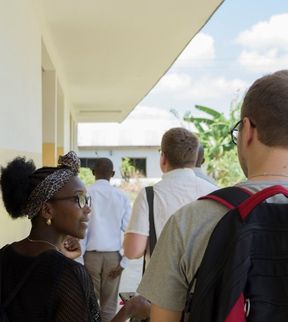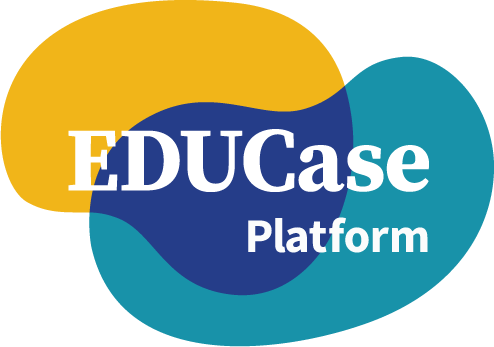Enhancing wastewater treatment plant resilience

The student challenge was part of the PBL-BioAfrica initiative and tackled the shortcomings of wastewater treatment in the face of a growing population, aging infrastructure, and the impacts of climate change in Zambia. This collaborative effort brought together individuals with diverse knowledge and skills, with the objective of developing innovative solutions for the critical issues faced by wastewater treatment facilities in Zambia.
To achieve the objectives of the challenge, the students from Aalto University’s Sustainable Global Technologies program (SGT), Mulungushi University, and the University of Zambia embarked on a two-week field visit to Zambia in the spring of 2023. Upon arrival, the students visited three distinct wastewater treatment facilities: the Nkana Water and Sanitation Facility, the Livingstone Southern Water and Sanitation Facility, and the Lusaka Water and Sanitation Facility. These excursions provided valuable insights into the operations of these facilities, facilitating a deeper understanding of the challenges the locals face. It is noteworthy that, the work started before the students conducted the fieldwork. One of the students from Aalto University expressed, "Prior to the travel, we conducted extensive background research on the topic, the country, and gained an understanding of the systemic nature of the problem. We also had Zoom meetings with fellow students in Zambia, laying the groundwork for effective collaboration."
The methodological approach was problem-based learning (PBL). The methodology grounded the teams in a collaborative bottom-up approach that involved knowledge sharing, formulating, and solving problems with local stakeholders, and learning collectively. The students also utilized the systems thinking approach throughout the project. This approach is a useful tool for identifying key interconnections and feedback loops in large and multilevel systems, such as wastewater systems.
The field visit was of paramount importance, fostering local engagement and dialogue exchange. Jacob Mphasi from Mulungushi University described the PBL learning experience as "incredible" and emphasized the significance of the newly acquired digital skills, with special praise for the tool Miro. Despite a packed field visit schedule, the teams successfully advanced their project through observations, interviews, and focused group discussions within two weeks. The students meticulously mapped their findings to the classic dimensions of sustainability: Environmental, Social, Economic, and Technical.
The primary challenges identified in enhancing the resilience of wastewater facilities encompassed issues such as inadequate funding, a shortage of manpower, and failing assets. The student teams further refined and analyzed the collected data, ultimately designing a conceptual model tailored to the specific needs of the three wastewater facilities visited. The conceptual model suggested a framework for assessing and responding to risks incorporating elements such as challenges, mitigation strategies, adaptations, and opportunities. Additionally, the students co-created a practical diagrammatic solution to support case facilities linking their current challenges and potential failure scenarios to both reactive and proactive measures.
As the project evolves, the Aalto team and its partner teams remain committed to applying problem-based learning principles and continue collaborating through online platforms. The students are further dedicated to enhancing cultural exchange between Finland and Zambia and supporting intercultural and interdisciplinary learning. Their dedication reflects a collective effort to address critical challenges, emphasizing the power of global collaboration and interdisciplinary approaches in finding sustainable solutions for communities around the world.
Read more news
Breaking the Darkness: Tackling energy crisis in Lesotho
Lesotho, often called the Kingdom in the Sky due to its high altitude, faces a severe energy crisis, with nearly half of its population lacking access to reliable electricity.
Transforming Interdisciplinary Education: Sustainable Global Technologies (SGT) Across Four Continents
The true impact of our actions often unfolds over time, as demonstrated by the students at the SGT FAIR’24 on May 22. Their work showcased how a single student challenge can drive significant change.
A Global Learning Space: Empowering Students for Responsible Global Engagement
As part of the EDUCase network, the University of Oulu has offered to be the testing ground of a virtual learning initiative that aims to revolutionize virtual learning.
